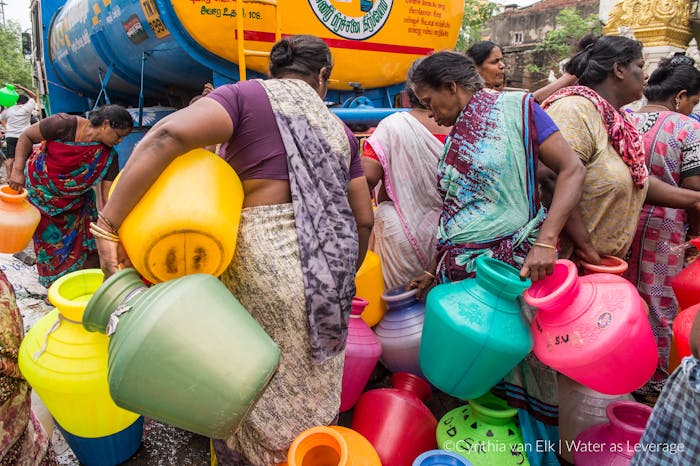The Global Water as Leverage Journey
WaL Asia Inspired by the Rebuild by Design competition held in New York in the aftermath of hurricane Sandy, Water as Leverage for Resilient Cities Asia (WaL Asia) was developed as the first initiative of the WaL programme by the Dutch government and global partners. Following a call to action on World Earth Day 2018, six multidisciplinary teams of international and local experts developed innovative solutions for three cities in Asia: Semarang (Indonesia), Khulna (Bangladesh), and Chennai (India). In May 2019, the teams submitted 24 project proposals, each tailored to address the specific resilience challenges of these cities. In Chennai, this culminated in the inauguration of a demonstration project in 2023.
New WaL initiatives Since WaL Asia, new WaL initiatives have been developed in Cartagena (Colombia), the Wadden Sea (Denmark, Germany, Netherlands), Nakuru (Kenya), Prayagraj (India), and Bangkok (Thailand).
Scaling WaL In 2023, during the UN Water Conference, former Minister Harbers of the Dutch Ministry of Infrastructure and Water Management, in collaboration with global partners, announced the commitment to “Scaling up Water as Leverage for worldwide urban climate resilience, through water” as part of the Water Action Agenda. The outlined path focuses on scaling and replicating WaL experiences through three key components: (1) The WaL Factory: Institutionalizing the WaL program, which has evolved into the WaL Multilevel Climate Action Programme. (2) The WaL Academy: Cultivating a vibrant WaL culture, enhancing capacities, and fostering innovation. (3) WaL City Initiatives: Implementing targeted actions that collectively aim to improve the quality of life for millions of people.

 03 Good Health and Well-being
03 Good Health and Well-being
 06 Clean Water and Sanitation
06 Clean Water and Sanitation
 11 Sustainable Cities and Communities
11 Sustainable Cities and Communities
 13 Climate Action
13 Climate Action
 14 Life Below Water
14 Life Below Water
 15 Life On Land
15 Life On Land
 17 Partnerships for the Goals
17 Partnerships for the Goals